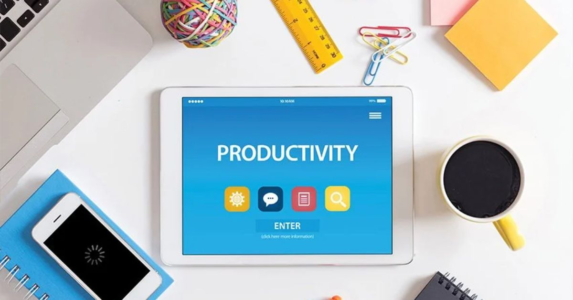How Mobile Apps Are Transforming the Healthcare Industry?
The acceptance of digital transformation can be witnessed in every aspect of our lives, and because of its convenience, almost every industry is leveraging its features. When talking about several industries, healthcare is no exception. It has been undergoing a significant revolution and emerging as one of the powerful tools.
Healthcare apps, like DoctorOnDemand or MyFitnessPal bridge the gap between patients & healthcare providers and redefine the way we approach healthcare. As a result, the demand for healthcare mobile app development services has risen.
In this guest blog, we’ll explore how mobile apps are transforming the healthcare industry and making healthcare more accessible, efficient, and patient-centric.
Also, we have a complete guide on healthcare that includes the types, trends, and cost. So, if you want to expand your knowledge more, we have got you covered.
Top 6 Advantages of Mobile Apps for the Healthcare Industry
Developing a mobile app for your healthcare can thrive your business in many ways as it provides numerous benefits, like:
- Accessible Healthcare at Your Fingertips
One of the most significant impacts of mobile apps in healthcare is the unprecedented accessibility they provide. Patients can now access medical information, consult with doctors, and even monitor their health conditions from the comfort of their homes. Telemedicine apps, for instance, have made it possible for patients to receive expert medical advice through video calls.
- Personalized Health Management
Mobile apps are taking the lead in an era of personalized healthcare. With features like health tracking, users can monitor their vital signs, track medications, and record symptoms. These apps analyze the data to provide personalized health recommendations & reminders, empowering individuals to take control of their well-being.
- Improving Medication Adherence
Non-adherence to medication regimens is a significant issue in healthcare. Mobile apps address this challenge by sending timely reminders and offering educational content about medications. Some apps even provide pill identification and interaction checkers to ensure patients take their medications safely and consistently.
- Streamlining Healthcare Administration
Healthcare professionals are also benefiting from mobile apps. Administrative tasks such as appointment scheduling, billing, and medical record management have become more efficient, allowing doctors and nurses to focus more on patient care. The streamlining of administrative processes enhances the overall healthcare experience for both providers and patients.
- Enhancing Remote Monitoring
Mobile apps are transforming the way chronic diseases are managed. Patients with conditions like diabetes or hypertension can use apps and connected devices to monitor their health in real-time. Data is transmitted to healthcare providers, enabling timely interventions and reducing hospital readmissions.
- Ensuring Data Privacy and Security
As mobile apps play an increasingly crucial role in healthcare, ensuring data privacy and security is paramount. Healthcare apps must comply with strict regulations like HIPAA to protect patients’ sensitive information. Robust security measures, encryption, and authentication protocols are essential components of healthcare app development.
Read More: Factors to Consider While Selecting the Best Email Migration Tool
How Healthcare Mobile Applications Help Patients?
Those days are gone when patients used to visit clinics for minor health issues; now, they are just a few clicks away from their doctor’s consultation. All thanks to the evolution of healthcare mobile applications. It has enabled patients to find good doctors, book appointments, or view their medical reports online.
Healthcare mobile applications are not less than a blessing for patients as it helps them in maintaining a healthy lifestyle. They can also get in touch with their doctors over video calls to discuss their health related problems.
How Healthcare Mobile Applications Help Medical Professionals?
The launch of various healthcare apps has benefitted doctors or medical professionals on various levels. From monitoring the patient’s reports, clinical documentation to maintaining health records and health administration, healthcare mobile applications have it all.
With the help of healthcare apps, doctors can get immediate access to their patient’s reports, and get fewer risks of misdiagnosis. Building healthcare app also enhances the patient engagement along with better data management.
The Digital Healthcare Revolution
The development of mobile apps has revolutionized the healthcare industry with the integration of different technologies & features. For instance:
- Wearable Technology Integration
Many healthcare apps now integrate with wearable devices like smartwatches and fitness trackers. The integration enables users to track their health metrics, such as heart rate, activity levels, and sleep patterns. The data collected from wearables can be seamlessly synchronized with mobile apps.
- AI and Machine Learning
Artificial intelligence and machine learning algorithms are increasingly used in healthcare apps to assist in diagnosing medical conditions. For example, these algorithms can analyze medical images (like X-rays and MRIs) for abnormalities, improving diagnostic accuracy and efficiency.
- Pharmacy and Medication Delivery Services
Mobile apps developed by pharmacies or medication delivery services allow users to order prescription refills, set medication reminders, and even have medications delivered to their doorstep. The convenience is particularly valuable for those with chronic conditions.
- Patient Engagement and Education
Healthcare apps engage users by providing educational content about their health conditions and treatment options. Interactive features, such as videos explaining medical procedures or forums for sharing experiences, empower patients to take an active role in their healthcare journey.
- Emerging Trends and Innovations
Emerging trends like augmented reality (AR) used for medical training, virtual reality (VR) for pain management during medical procedures, and blockchain for secure & health data storage. These innovations are pushing the boundaries of what healthcare apps can achieve.
Must-Have Healthcare Mobile App Features
The development of healthcare mobile applications has made it convenient for patients to get in touch with their doctors and maintain a healthy lifestyle. On the other hand, doctors can also have an improved patient engagement.
Adding significant features to your healthcare app can make your mobile application even more unique. Here are some of the features that you must integrate into your healthcare app.
- Simple Registration and Login
Integrate a registration & login feature in your healthcare mobile application, where users can easily create an account using their existing Gmail ID. The fewer steps you will include the better it will be; for instance, include name or contact details.
- Create a Profile
In the next step, users should be able to create a profile within a few steps. They should have the ability to upload a profile picture, add personal details, and other relevant details.
- Appointment Management
In a healthcare app, appointment management is a crucial feature, where patients can easily book an appointment with the doctor. Later, enabling doctors to receive those requests and accept them as per their schedule.
- Medicine Reminder
Adding a medication reminder to your healthcare app can be a useful feature for your patients. You can make the users alert about taking their medicine on time by sending push notifications through mail or messages.
- Remote Medical Assistance
Now, you can save your users time and make health checkup convenient for them by adding a remote medical assistance feature to your app. Enable the patients to get in touch with their doctors over a call or text, and even video call.
Final Words
In conclusion, the digital transformation wave has swept across industries, and healthcare stands as a shining example of its profound impact. The advent of healthcare apps has revolutionized how we access, manage, and engage with our well-being.
From the convenience of accessible healthcare at our fingertips to the empowerment of personalized health management, these apps have changed the healthcare landscape. The path ahead is clear: healthcare apps are here to stay, and they are shaping a more accessible, efficient, and patient-centric healthcare system.



Leave a Reply
You must be logged in to post a comment.